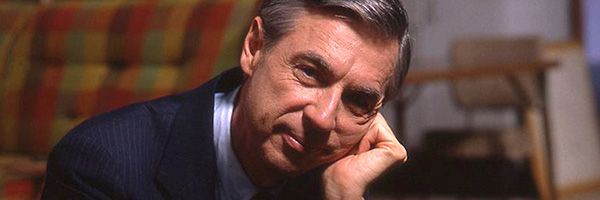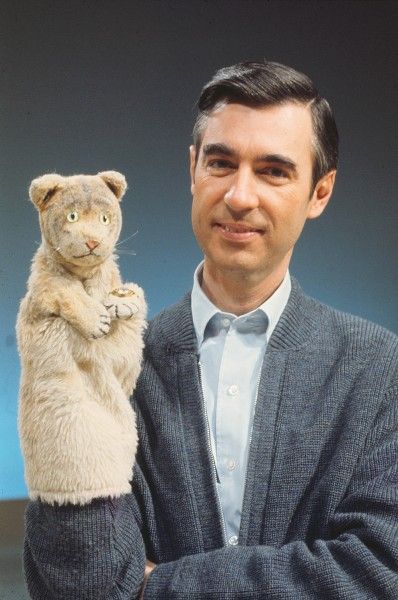[This is a repost of my review from the 2018 Sundance Film Festival. Won't You Be My Neighbor? opens today in limited release.]
I did not expect to cry as much as I did during Won’t You Be My Neighbor?, Morgan Neville’s documentary chronicling the life and career of Fred Rogers. As a cretinous youth who preferred the colorful Sesame Street to the staid Mister Rogers’ Neighborhood, it’s only now as an adult that I can fully appreciate what Rogers was doing with his unique TV program. And yet as Won’t You Be My Neighbor? shows, Rogers, an ordained Presbyterian minister with a background working alongside child psychologists, lived his values and created something special and enduring as a result. Although the documentary derives a large part of its strength simply from watching Rogers in action, it’s still a moving tribute not only to the individual, but to the kindness and compassion he and his program embodied.
Launching from the creation of Mister Rogers Neighborhood rather than Fred Rogers’ birth (surprisingly little of Rogers’ childhood is noted in the documentary), we follow how Rogers was able to seize on television as a unique tool for reaching children and instilling positive values. Although there is some loose chronology about the show’s development and Rogers’ other projects, it’s mostly organized by topic including Rogers’ theology, how he interacted with people on the crew, his masculinity, nihilistic critiques that the show gave kids too much self-esteem, and more. Throughout it all, Neville balances the look at Rogers by showing him as a remarkable individual who was still racked by the same doubts and flaws as the rest of us.
Trying to both exalt and ground Rogers is a tricky balancing act, but it’s also at the core of what Rogers was going for with his approach to children. To Rogers, children didn’t need to prove themselves to adults; adults need to prove themselves to children. In one clip, he recalls meeting a group of children, and having to show that he was on their wavelength. So the notion that Rogers must be perfect or that we weren’t good enough to “deserve” him is against his core philosophy that all people have value. For a man who preached about loving people just the way they are, the movie understands that we also have to love Rogers just the way he is.
What’s surprising about Won’t You Be My Neighbor? is how it shows such a distinct person as Rogers being surprisingly difficult to nail down. As one of his former coworkers points out, there’s no room on TV anymore for someone as “nice” as Rogers, and another interview subject notes that his on-camera persona wasn’t an act. That’s who he truly was, and any attempt to make him somehow “darker” (like the urban legends about his body being covered in tattoos or he killed a bunch of people in the Korean War) miss the fact that he was truly kind and never lost touch with his inner child.
His unique personality led to a unique TV show, and Won’t You Be My Neighbor? is never so reverent that it assumes everything Rogers did was brilliant. If anything, it shows how he was such an aberration like when he sat down to just to watch an egg timer work for a minute or just enjoy silence. The documentary notes that Rogers wasn’t just an aberration in television; he was actively opposed to the majority of how television treated children, not as people with emotions but potential consumers. Some may see this as overly stodgy or conservative, but it all comes from a place of wanting to protect children from a form of exploitation. If it wasn’t enriching their lives, it must be a drain. That may be debatable, but it at least comes out of a clear moral compass.
And that moral compass wasn’t always right. In a surprising story told by François Scarborough Clemmons, Rogers chastised him for going to a gay bar, telling Clemmons that he could no longer go back because it would endanger their relationship to sponsors. To be fair, Rogers was a product of the time in that regard (although he was shockingly progressive in others, especially race relations), but the documentary also shows that he was fallible. It would be nice if he stood up for LGBT rights in the 1970s and 80s, but he didn’t want to endanger his show. It’s a tough compromise, and I’m sure some viewers will take issue with it, but looking at the body of Rogers’ work, it’s difficult to say this position came from a place of hate or prejudice.
If there’s one frustrating aspect of Won’t You Be My Neighbor is that Neville goes to so many interesting places that we want to say there a bit longer. An entire movie could probably be made just out of Fred Rogers and his theology, but it only warrants a few minutes in the documentary. The same goes for Rogers’ approach towards masculinity, showing himself as a loving, nurturing figure contrary to what our society demands of men. Neville still does an admirable job of weaving everything together (especially with some brilliant animated segments featuring Daniel Striped Tiger), but you get the sense the documentary could be at least a half-hour longer without ever dragging.
The question I couldn’t shake throughout Won’t You Be My Neighbor? is how we would treat Fred Rogers if he was still alive today. Rogers passed away in 2003 before the age of Internet thinkpieces, but he was already facing criticism because his show had dared to tell children they were special and had value. Also considering his criticisms of television, I shudder to think how he would react to YouTube and the Internet, which is like hyper-television with even less supervision. All of this throws Rogers’ entire legacy into question, forcing us to ask if he was a singular figure or someone who legitimately made the world a better place.
Based on my tears and those of people around me during the screening, I’m inclined to believe it’s the later. There may never be another Mister Rogers, but his simple kindness was transformative, and Mister Rogers’ Neighborhood isn’t just a figure of nostalgia nor are his values quaint and antiquated. They remind us about the best parts of ourselves, and the importance of love not in the abstract, but in how we relate to others. Fred Rogers demonstrated a love of children by talking to them on their level but also trusting they could handle topics as heavy as war and assassination. He wasn’t naïve; he simply decided to believe the best in children. That didn’t make him a saint. It didn’t make him a revolutionary. It just made him the best neighbor anyone could ask for. Won’t You Be My Neighbor is a way for both Neville and the audience to say to Rogers, “Thanks for being you.”
Rating: A-



